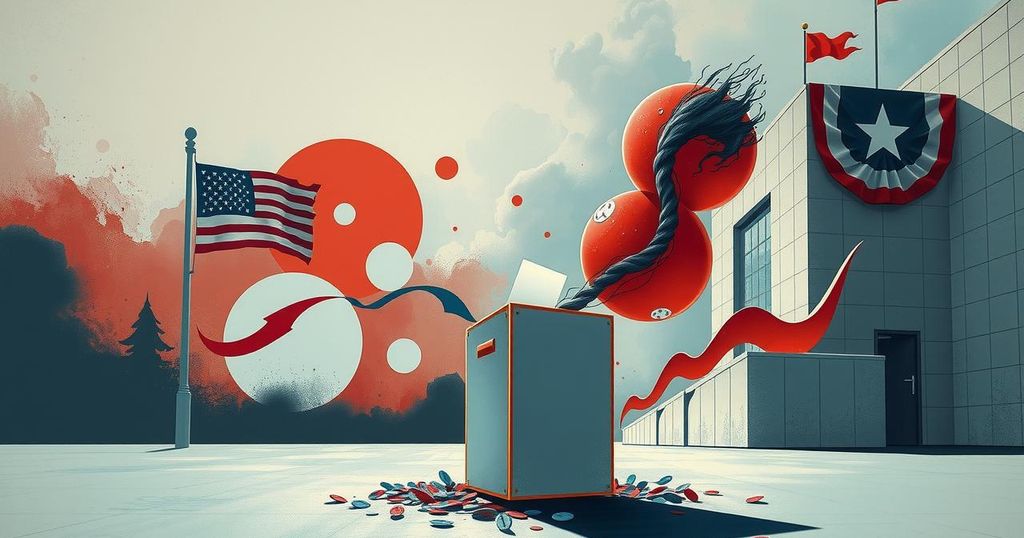Ecuadorian President Daniel Noboa narrowly led in the first-round voting against leftist contender Luisa Gonzalez, securing 44.3% of the votes. Both candidates will face off in a runoff election in April. Gonzalez’s performance indicates a push for change, while Noboa’s approach to drug cartel violence and economic strain faces scrutiny. The election outcome may significantly shape Ecuador’s future political landscape.
In the recent first-round voting for Ecuador’s presidency, incumbent Daniel Noboa executed a narrow lead against leftist challenger Luisa Gonzalez, winning 44.3 percent of the votes to Gonzalez’s 43.9 percent, with 93 percent of ballots counted. This result sets the stage for a runoff election scheduled for April. Noboa, who focused his campaign on addressing rampant drug cartel violence, proclaimed a victory despite the unexpected competition from Gonzalez.
Gonzalez, a prominent lawyer and single mother, claimed her strong performance signifies a desire for change among the electorate. She emphasized her human rights stance in addressing cartel-related violence. Indigenous leader Leonidas Iza trailed significantly behind with only 5.3 percent of the votes.
This electoral battle is a rematch for Noboa and Gonzalez, who previously competed for the presidency 15 months ago. The election is widely perceived as a referendum on Noboa’s stringent law enforcement measures aimed at combating rising murder, kidnapping, and extortion rates, all of which have made Ecuador increasingly dangerous due to drug cartel operations.
As president, Noboa has employed extensive measures to address violence, including declaring a state of emergency and deploying armed forces. However, human rights organizations have raised concerns about abuses resulting from these tactics, including civilian casualties. Despite these issues, Gonzalez’s camp sees a potential victory as a return to more democratic policies under her political legacy.
Noboa asserted that a Gonzalez presidency would revert to the past policies of ousted socialist Rafael Correa, who governed Ecuador from 2007 to 2017. Correa, presently exiled, expressed confidence in Gonzalez’s chances of winning through social media.
Ecuador’s current turmoil has deterred both tourists and investors, prompting Noboa to collaborate with the International Monetary Fund for economic stability. Meanwhile, Gonzalez remains open to IMF assistance under the condition that it does not adversely affect working families. Additionally, she anticipates the large-scale return of migrants, which will likely decrease remittance inflows crucial to the economy.
The electoral results illustrate a divided Ecuador, with Noboa and Gonzalez vying for power amid escalating violence and economic challenges. As they prepare for the runoff, each candidate presents a starkly different vision for the country’s future, emphasizing the electorate’s desire for change and stability. The outcome could redefine Ecuador’s approach to governance and socio-economic reform in light of mounting pressures from drug cartels and international relations.
Original Source: www.news-journal.com






